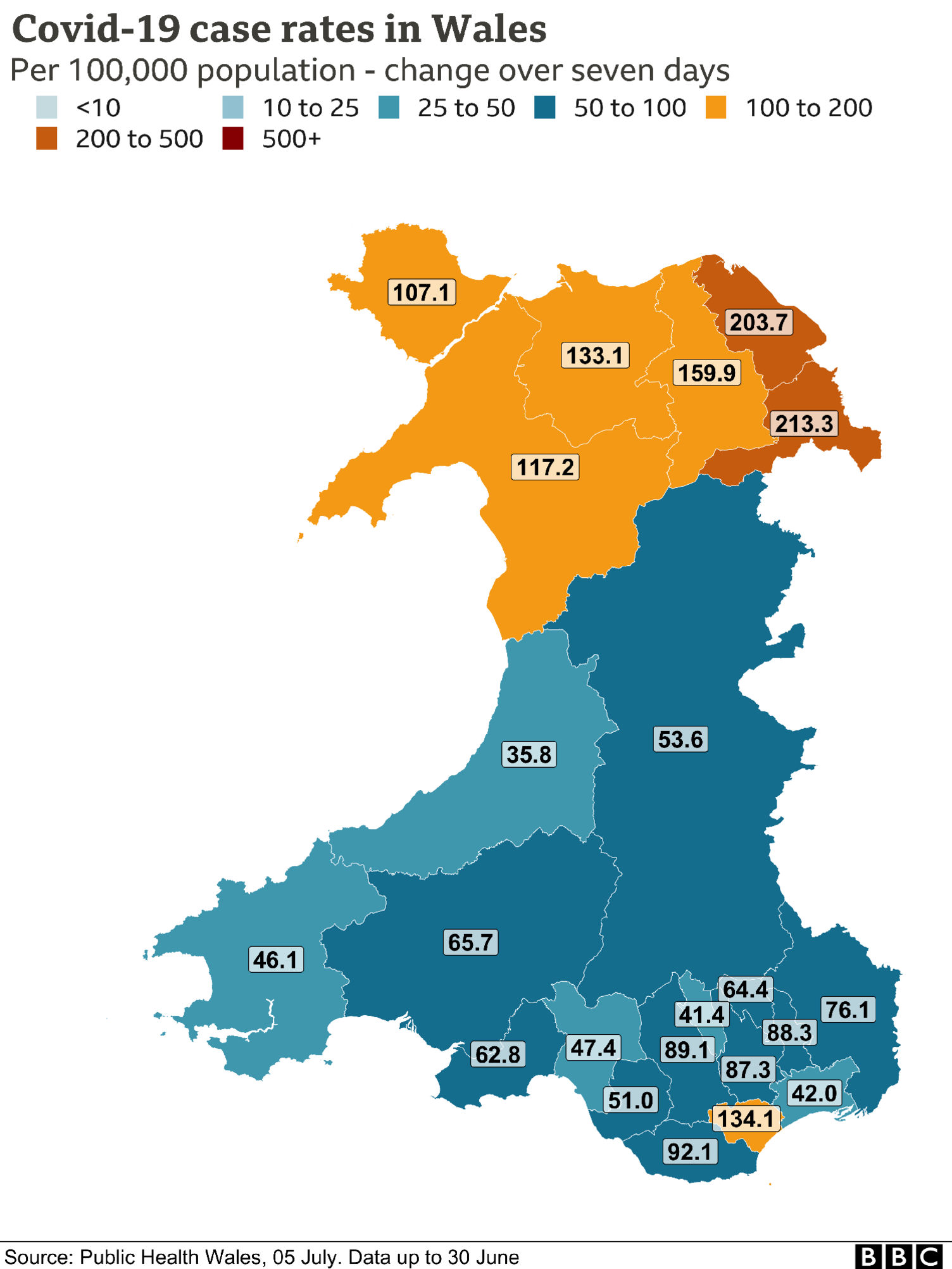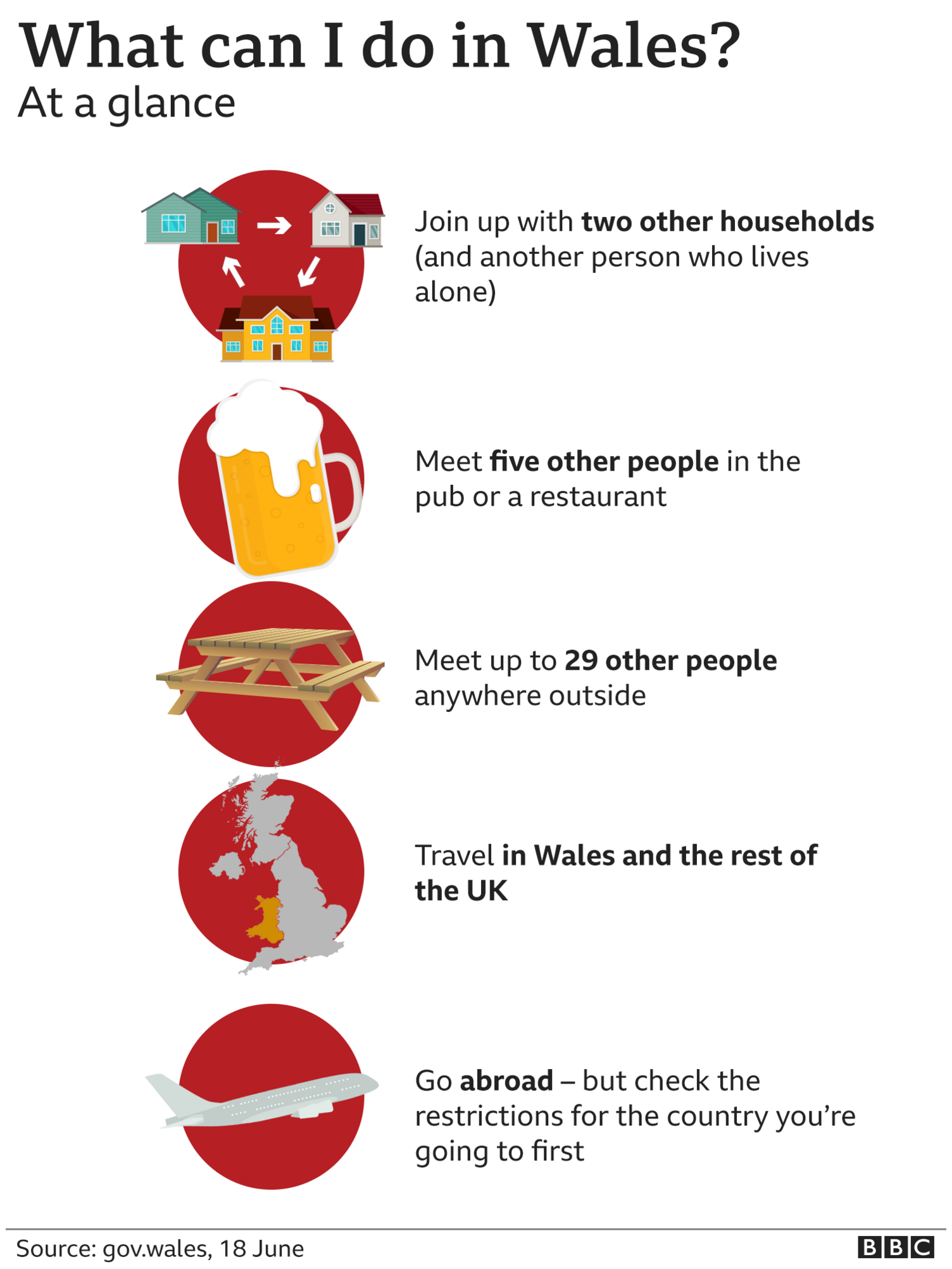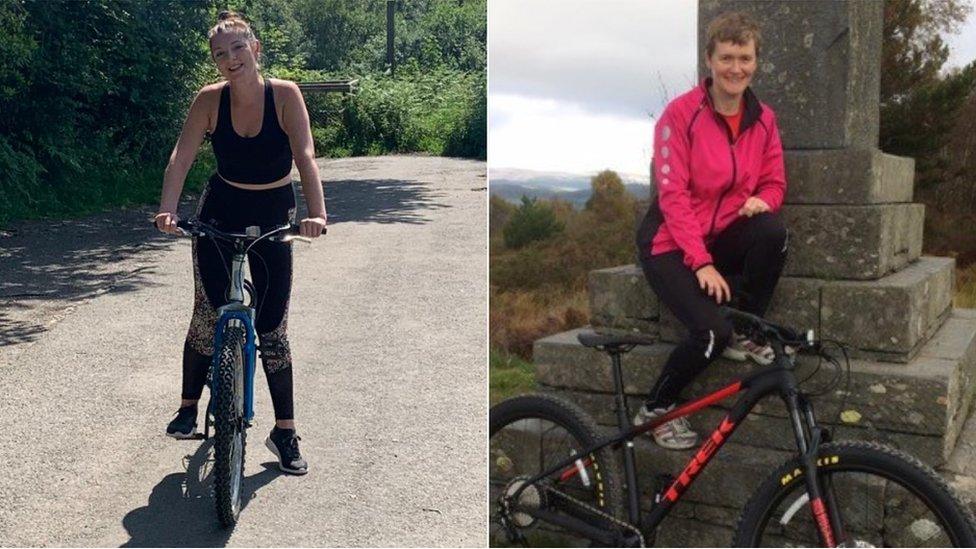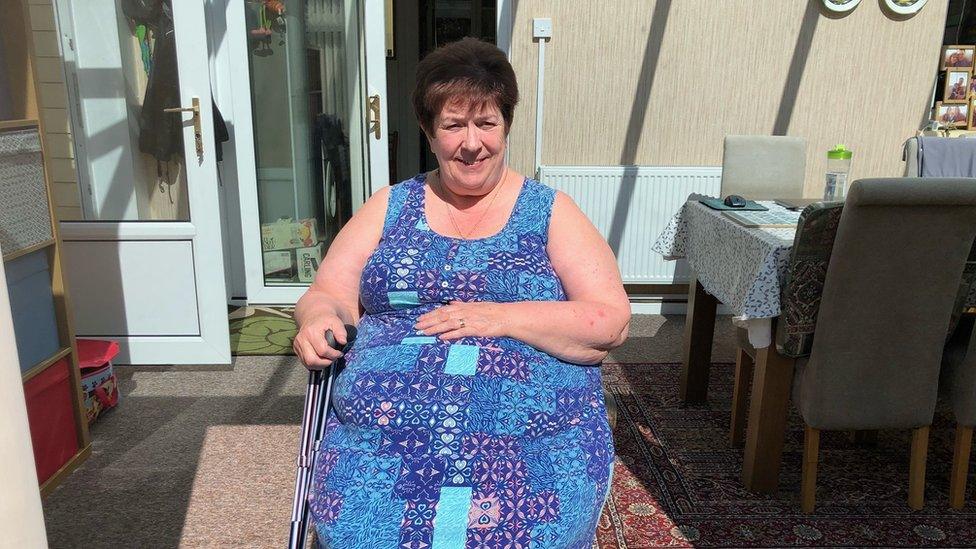Covid: More uncertainty now 'than any other time'
- Published
- comments

The Welsh government's chief scientific advisor for health said we will be living with the virus for some time
There is "more uncertainty" now than at any point since the start of the Covid pandemic, according to a top government health scientist.
Dr Rob Orford described the situation as a race between the growth of the Delta variant and the vaccines - which will determine how soon we can "live with Covid".
The case rate in Wales is currently 96 per 100,000 people.
Dr Orford said the vaccine uptake would make a big difference going forward.
Why do different variants occur?
The Welsh government's chief scientific advisor for health, explained how variants have come to develop: "The virus needs people to make more copies of itself and replicates its 30,000-letter code.
"It's ruthless and every time it makes a new copy there's a chance a mistake can arise.
"If I write out the alphabet 1,000 times, there's a good chance I might make some random errors that might lead to new words - some of those might stick.
"If I ask you then to copy those letters, you could make your own mistakes.
"Some of those mistakes lead to mutations that will benefit the virus, it might make it able to stick to a cell easier, it might be able to gain access easier so it's through this rapid evolution we see different mutations - some will be good for the virus, some not so good."
How much of a risk is the Delta variant?


Dr Orford said Wales was in a period with "a great deal of uncertainty - probably more uncertainty than at any other point in the pandemic".
"It's a foot race between the amount of vaccines we can put in people's arms and the growth of the variant in the community - but people have a great deal of control.
"We don't know how fast the Delta variant can run - whether it can run 40% faster than the Alpha variant - the old Kent strain - or 80% faster... But the crowd, the public, we can slow down Delta by taking sensible measures - keeping windows open, washing hands, if feeling unwell - not going out.
"We can stop Delta running away with the race."
Dr Orford said the new variant could result in significant pressure on the NHS, but added it could be avoided if vaccination proved to have sufficiently "stretched the elastic" linking infection and serious illness.
'Young people need to get vaccinated'
Dr Orford said young people needed to "grab the opportunity" of getting jabbed to protect themselves and others, despite the lower risk of being seriously ill.
He said the fewer who got the jab, the greater the risk of "sparks landing on dry kindling" and outbreaks taking hold.
"Whilst there are a fixed number of people that can go through the doors of a vaccination centre, the virus will exploit everybody that it comes into contact with and unless you've been vaccinated there's a risk that you'll get infected and go on to infect others and the numbers will rise very quickly."
He added that young people's behaviours could make a difference to how quickly restrictions could be relaxed and the prospects for what life will be like later on this year rested "in all of our hands".


'The storm will pass'
Looking to the future, Dr Orford is hopeful "this storm will pass", but as it's unlikely that Covid will be eliminated, society must learn to live with the virus some time.
"There's enormous amount of uncertainty and an significant amount of frustration, however, the way in which Wales and the people of Wales have reacted to Covid has been really quite incredible - but we're still going to need protective measures.
"A week is a long time in science so it's difficult to foresee what the next six months will look like but I would hope in a good version of reality the vaccines prove really effective."
He said we may still cases and levels of hospitalisations increase, but hopefully it will be less older and more vulnerable people as they are fully vaccinated.
"It's still in the gift of the public - how people mix, what do they do when they become unwell, to determine how cases will rise. I hope that vaccine progress will enable to have a more positive outcome."
Find out how the pandemic has affected your area and how it compares with the national average:
If you can't see the look-up click here., external
The postcode search has been updated to replace data for health boards in Scotland with data for local councils. In England, data for county councils has been replaced with data for district councils. Figures for boroughs and unitary authorities remain unchanged.

A SIMPLE GUIDE: What are the symptoms?
IN-DEPTH: Coronavirus pandemic
VACCINE: How will the UK deliver the jabs?
IMMUNISATION: Which Covid vaccine is best?

- Published5 July 2021

- Published3 June 2021

- Published30 June 2021

- Published15 June 2021

- Published6 October 2020

